
Wenna Ding
@wennading.bsky.social
Postdoc at Swiss Federal Research Institute WSL
Biogeographer & paleobotanist & macroevolutionary biologist
Science for working 🔭👩🏻💻Nature for loving🌿 🍂Mountains for exploring⛰️🌋🏕️Biodiversity for understanding🪐🌏☄️🦖❄️
Biogeographer & paleobotanist & macroevolutionary biologist
Science for working 🔭👩🏻💻Nature for loving🌿 🍂Mountains for exploring⛰️🌋🏕️Biodiversity for understanding🪐🌏☄️🦖❄️
Pinned
Wenna Ding
@wennading.bsky.social
· May 30
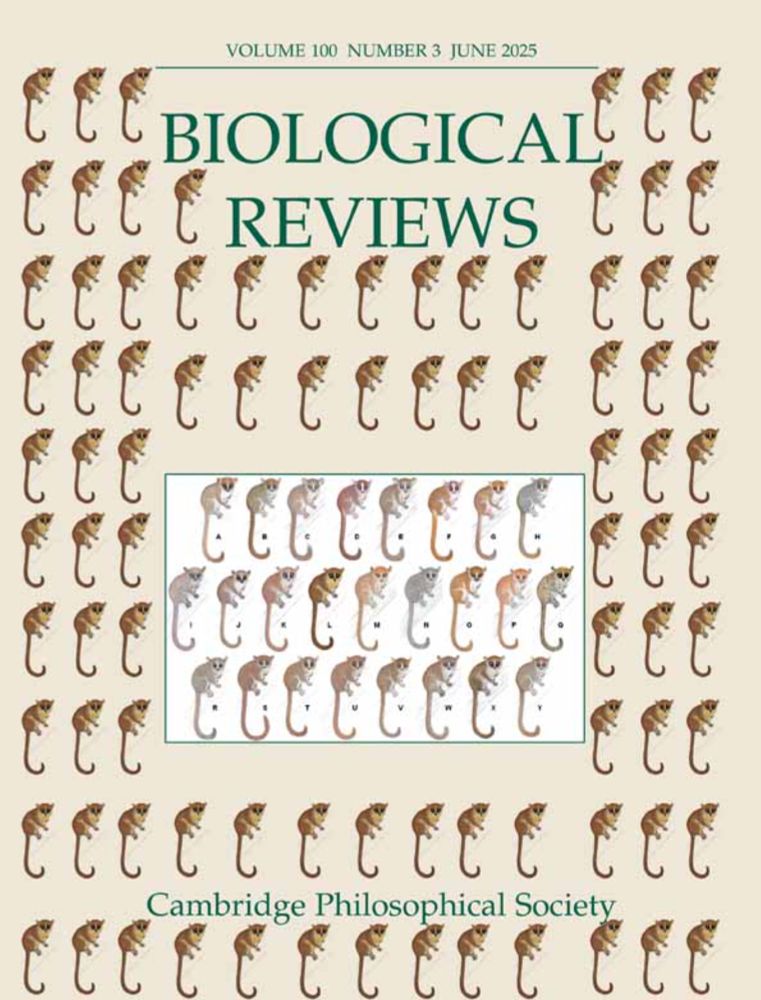
The stepwise rise of angiosperm‐dominated terrestrial ecosystems
Angiosperms are the most diverse and abundant plant taxon today and dominate the majority of Earth's terrestrial ecosystems. They underwent rapid divergence and biogeographic expansion from the early...
onlinelibrary.wiley.com
Very happy to see this out today! Our review explores the transformative role of angiosperms in shaping terrestrial ecosystems from the Cretaceous to the Cenozoic, detailing five key phases of angiosperm evolution by integrating fossil and molecular evidence. onlinelibrary.wiley.com/doi/10.1111/...
Reposted by Wenna Ding
Our latest paper on fish communities in nearly 80 peri-alpine lakes reveals that community assembly through immigration and speciation respond to different dimensions of ecosystem size: area and depth respectively. Check it out here
onlinelibrary.wiley.com/share/BKFKRT...
onlinelibrary.wiley.com/share/BKFKRT...
Recent and Rapid Assembly of an Island Species–Area Relationship Threatened by Human Disturbance
You have to enable JavaScript in your browser's settings in order to use the eReader.
onlinelibrary.wiley.com
October 31, 2025 at 10:32 PM
Our latest paper on fish communities in nearly 80 peri-alpine lakes reveals that community assembly through immigration and speciation respond to different dimensions of ecosystem size: area and depth respectively. Check it out here
onlinelibrary.wiley.com/share/BKFKRT...
onlinelibrary.wiley.com/share/BKFKRT...
Reposted by Wenna Ding
🍂🌳 #PhDAlert! MSc in #EnvironmentalSciences or a related field and interested in plant #phenology and #ecophysiology? Good level of fitness to carry out field work in remote locations? Our #Ecosystem #Ecology group offers a #PhD position: apply.refline.ch/273855/1789/... #ScienceJobs
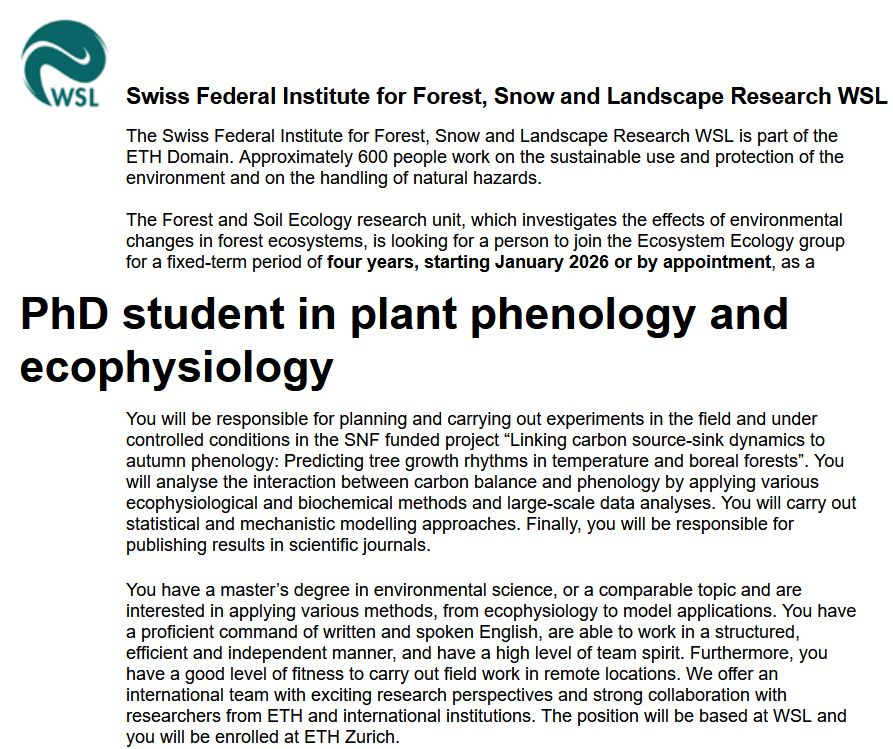
October 21, 2025 at 8:56 AM
🍂🌳 #PhDAlert! MSc in #EnvironmentalSciences or a related field and interested in plant #phenology and #ecophysiology? Good level of fitness to carry out field work in remote locations? Our #Ecosystem #Ecology group offers a #PhD position: apply.refline.ch/273855/1789/... #ScienceJobs
Reposted by Wenna Ding
Really happy to see chapter 2 of my PhD published today in @methodsinecoevol.bsky.social. DeepDiveR is an R package to assist with deep learning inference of biodiversity change through time 🤿🦊 Thanks to @bethanyjallen.bsky.social & Daniele Silvestro for the collaboration
doi.org/10.1111/2041...
doi.org/10.1111/2041...
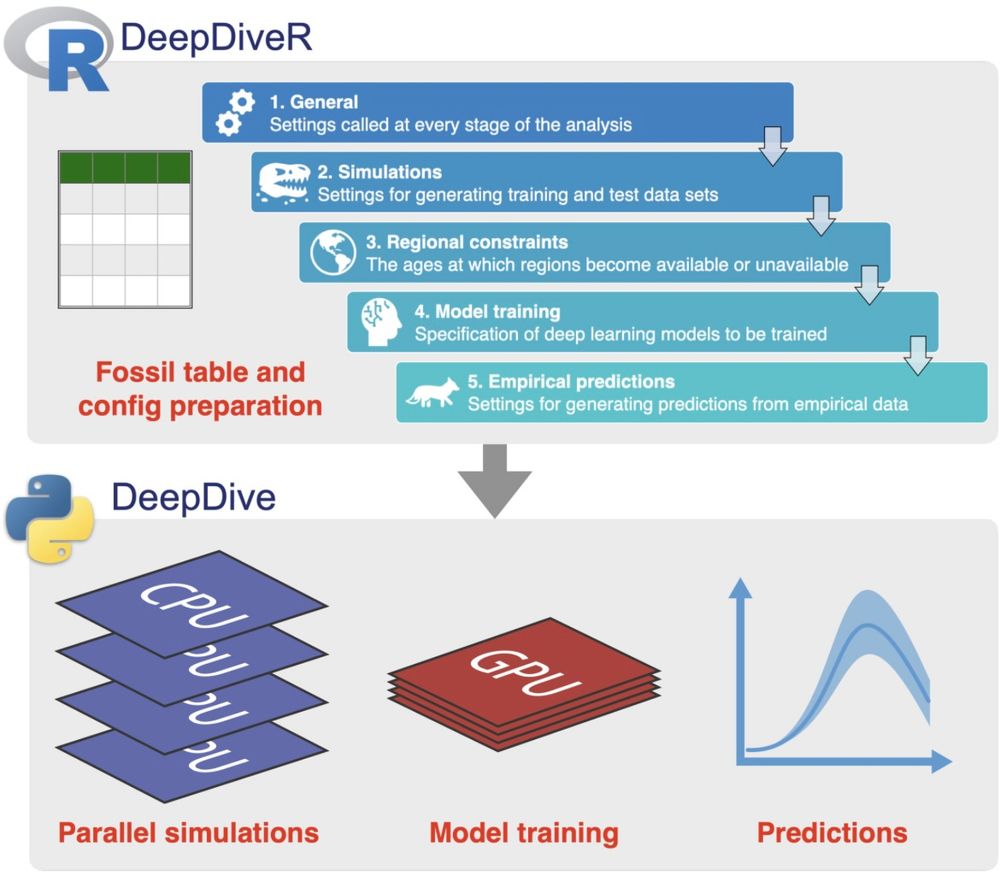
August 8, 2025 at 10:45 AM
Really happy to see chapter 2 of my PhD published today in @methodsinecoevol.bsky.social. DeepDiveR is an R package to assist with deep learning inference of biodiversity change through time 🤿🦊 Thanks to @bethanyjallen.bsky.social & Daniele Silvestro for the collaboration
doi.org/10.1111/2041...
doi.org/10.1111/2041...
Reposted by Wenna Ding
What a fantastic new paper out today in @pnas.org: www.pnas.org/doi/10.1073/... - and what a great resource, summarising the climatic niche of primates and tackling the hypothesis on whether primates evolved in warm tropical forests 😍
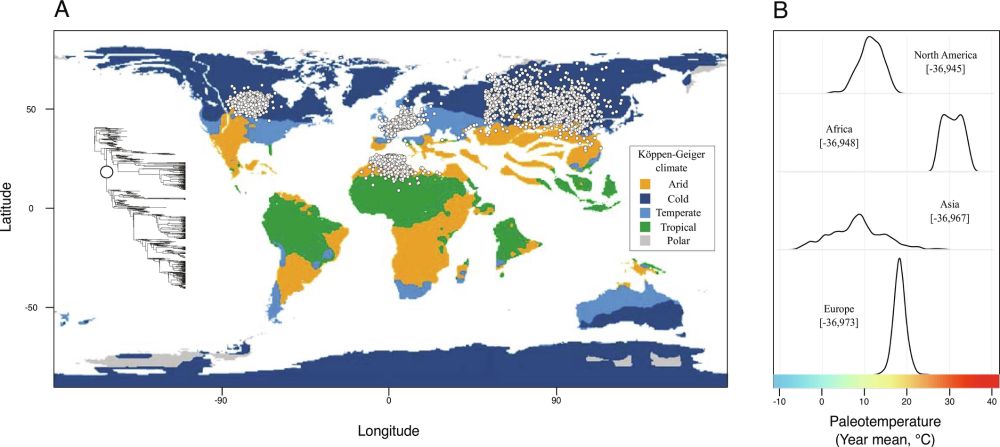
The radiation and geographic expansion of primates through diverse climates | PNAS
One of the most influential hypotheses about primate evolution postulates that their
origin, radiation, and major dispersals were associated with e...
www.pnas.org
August 7, 2025 at 8:18 AM
What a fantastic new paper out today in @pnas.org: www.pnas.org/doi/10.1073/... - and what a great resource, summarising the climatic niche of primates and tackling the hypothesis on whether primates evolved in warm tropical forests 😍
Reposted by Wenna Ding
📱🌱 Plant identification apps are booming – but which one is the best? And how reliable are the results? 🤔 Our researchers collected over 5,000 photos of 560 Swiss plant species from 85 habitat types and tested the most popular apps.🔎 Here are the findings: shorturl.at/lD0Cl

July 29, 2025 at 2:48 PM
📱🌱 Plant identification apps are booming – but which one is the best? And how reliable are the results? 🤔 Our researchers collected over 5,000 photos of 560 Swiss plant species from 85 habitat types and tested the most popular apps.🔎 Here are the findings: shorturl.at/lD0Cl
Reposted by Wenna Ding
🌿 Join Our Team as Postdoctoral Researcher in Regional Climate Downscaling at the Swiss Federal Research Institute WSL in Switzerland and lead the development of regional, highresolution climate scenarios for Armenia. @wslresearch.bsky.social @wsl-dme.bsky.social apply.refline.ch/273855/1747/...
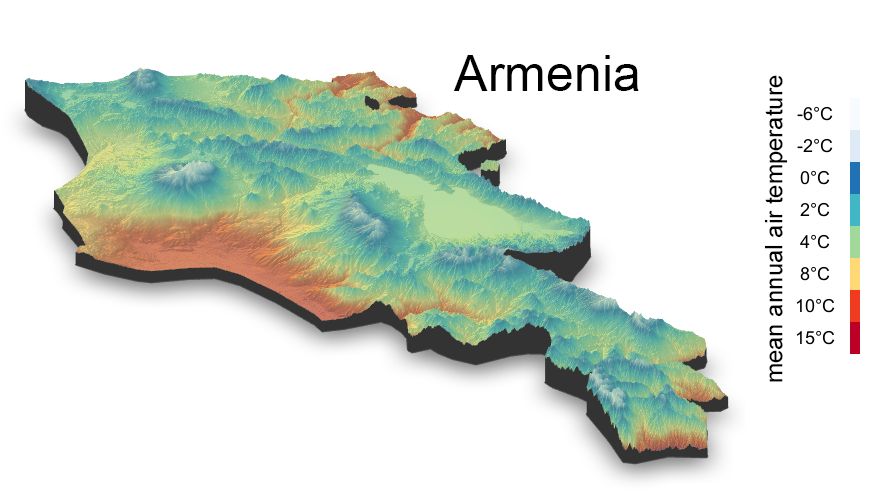
July 8, 2025 at 10:53 AM
🌿 Join Our Team as Postdoctoral Researcher in Regional Climate Downscaling at the Swiss Federal Research Institute WSL in Switzerland and lead the development of regional, highresolution climate scenarios for Armenia. @wslresearch.bsky.social @wsl-dme.bsky.social apply.refline.ch/273855/1747/...
Reposted by Wenna Ding
@clechartre.bsky.social reimplemented #BIOME4 into a modular, high-performance #Julia version, enabling 1 km vegetation modeling 🌱 and integration of #CHELSA climate datasets. 🌦️ We can now simulate biome patterns across complex terrains ⛰️ and define biome boundaries with greater accuracy. 🎯
July 10, 2025 at 7:32 PM
@clechartre.bsky.social reimplemented #BIOME4 into a modular, high-performance #Julia version, enabling 1 km vegetation modeling 🌱 and integration of #CHELSA climate datasets. 🌦️ We can now simulate biome patterns across complex terrains ⛰️ and define biome boundaries with greater accuracy. 🎯
Reposted by Wenna Ding
A global analysis shows consistent energy–diversity relationships across birds, mammals, amphibians & reptiles, resolving decades of ecological debate. Paper now out in @science.org : www.science.org/doi/10.1126/... 🌍🌐 #ecology #MetabolicTheory
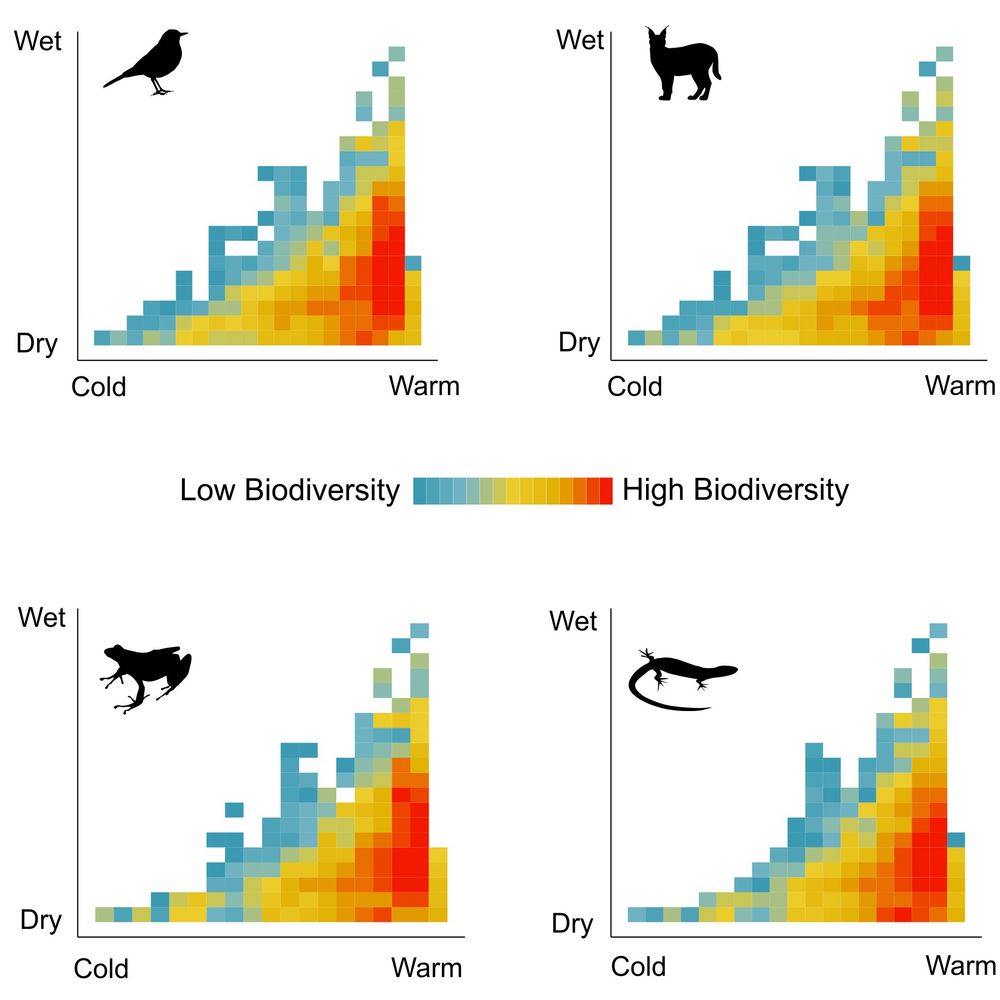
July 4, 2025 at 6:04 AM
A global analysis shows consistent energy–diversity relationships across birds, mammals, amphibians & reptiles, resolving decades of ecological debate. Paper now out in @science.org : www.science.org/doi/10.1126/... 🌍🌐 #ecology #MetabolicTheory
Reposted by Wenna Ding
In ectotherms, temperature-species richness relationships matched predictions of metabolic theory 🧪🌐 www.science.org/doi/10.1126/...
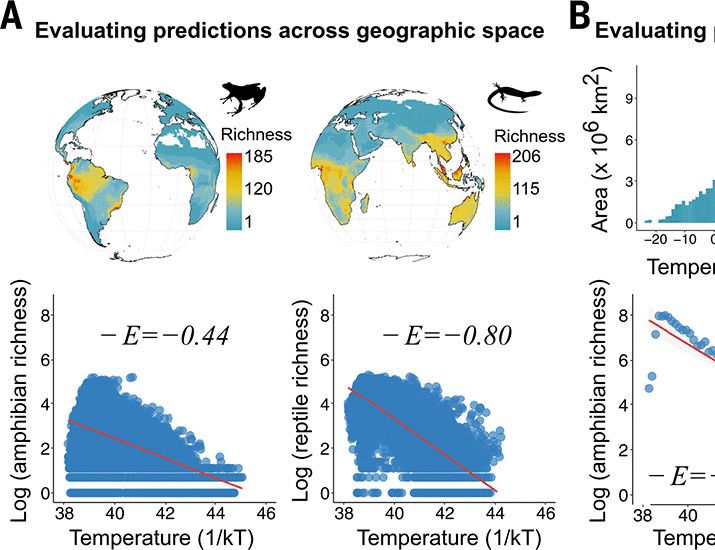
Consistent energy-diversity relationships in terrestrial vertebrates
Ecologists have long proposed that environments providing more energy can support more species, yet empirical evidence frequently contradicts this expectation. We argue that such inconsistencies resul...
www.science.org
July 4, 2025 at 8:16 AM
In ectotherms, temperature-species richness relationships matched predictions of metabolic theory 🧪🌐 www.science.org/doi/10.1126/...
Reposted by Wenna Ding
Go check out our event-based evaluation!
Beyond the global scale patterns of increasing multi-year droughts, there are over 10,000 identified events inventoried with explicit spatiotemporal coverage, from which one could easily extract events of their whatever interest across disciplines and uses.
Beyond the global scale patterns of increasing multi-year droughts, there are over 10,000 identified events inventoried with explicit spatiotemporal coverage, from which one could easily extract events of their whatever interest across disciplines and uses.
Earlier this year, Chen et al. @science.org showed that droughts are intensifying globally, with warming. www.science.org/doi/full/10.1126/science.ado4245,
Now, Gebrechorkos et al. @nature.com confirms the same findings. Very important work, but not wholly novel doi.org/10.1038/s415...
Now, Gebrechorkos et al. @nature.com confirms the same findings. Very important work, but not wholly novel doi.org/10.1038/s415...

Warming accelerates global drought severity - Nature
Increased atmospheric evaporative demand in recent years has increased drought severity by an average of 40% globally across both dry and wet regions, and the trend is likely to continue under future ...
doi.org
June 5, 2025 at 5:05 PM
Go check out our event-based evaluation!
Beyond the global scale patterns of increasing multi-year droughts, there are over 10,000 identified events inventoried with explicit spatiotemporal coverage, from which one could easily extract events of their whatever interest across disciplines and uses.
Beyond the global scale patterns of increasing multi-year droughts, there are over 10,000 identified events inventoried with explicit spatiotemporal coverage, from which one could easily extract events of their whatever interest across disciplines and uses.
Reposted by Wenna Ding
🌿 What makes plants in tropical ecosystems so unique & remarkably adapted to their environment? 🌸✨
We explored this question during a visit to the Botanical Garden in Zurich, guided by our group member dirknkarger.bsky.social — a fantastic opportunity to observe tropical plant traits up close. 🔎🌱
We explored this question during a visit to the Botanical Garden in Zurich, guided by our group member dirknkarger.bsky.social — a fantastic opportunity to observe tropical plant traits up close. 🔎🌱
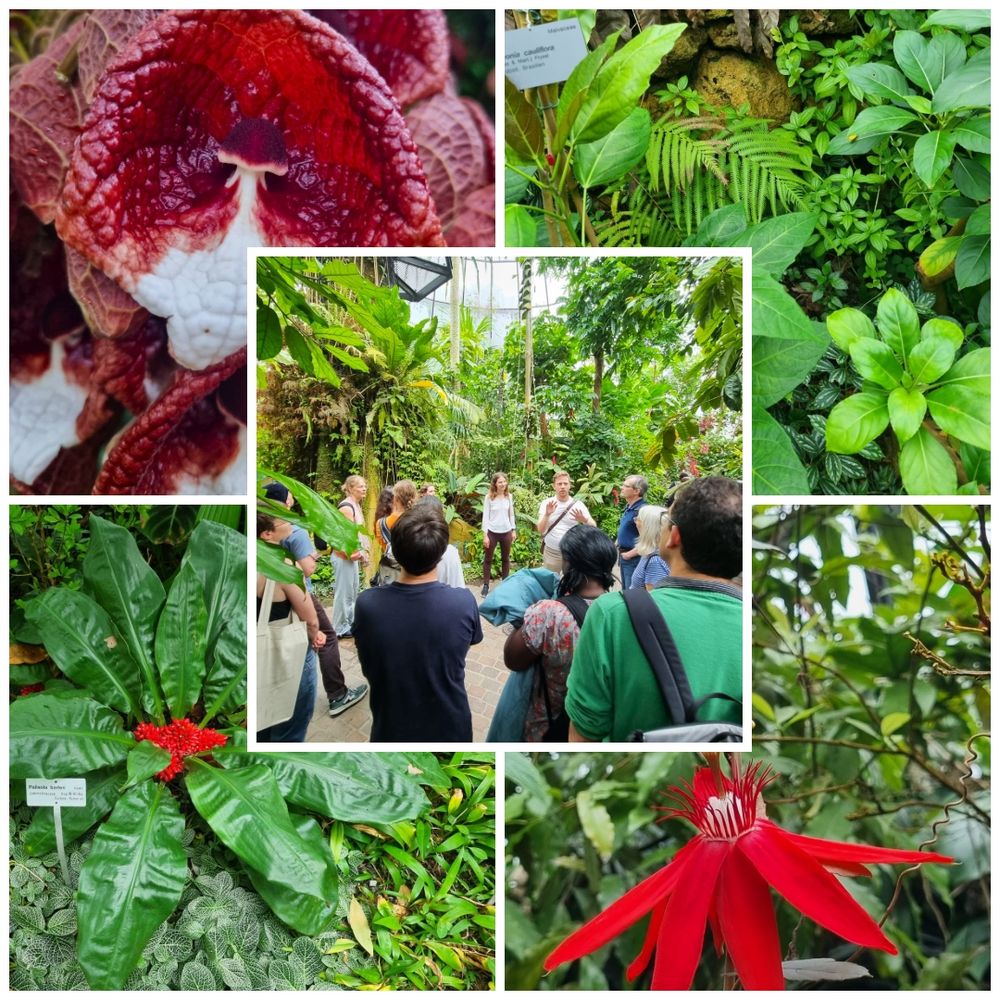
June 3, 2025 at 3:38 PM
🌿 What makes plants in tropical ecosystems so unique & remarkably adapted to their environment? 🌸✨
We explored this question during a visit to the Botanical Garden in Zurich, guided by our group member dirknkarger.bsky.social — a fantastic opportunity to observe tropical plant traits up close. 🔎🌱
We explored this question during a visit to the Botanical Garden in Zurich, guided by our group member dirknkarger.bsky.social — a fantastic opportunity to observe tropical plant traits up close. 🔎🌱
Very happy to see this out today! Our review explores the transformative role of angiosperms in shaping terrestrial ecosystems from the Cretaceous to the Cenozoic, detailing five key phases of angiosperm evolution by integrating fossil and molecular evidence. onlinelibrary.wiley.com/doi/10.1111/...

The stepwise rise of angiosperm‐dominated terrestrial ecosystems
Angiosperms are the most diverse and abundant plant taxon today and dominate the majority of Earth's terrestrial ecosystems. They underwent rapid divergence and biogeographic expansion from the early...
onlinelibrary.wiley.com
May 30, 2025 at 11:32 AM
Very happy to see this out today! Our review explores the transformative role of angiosperms in shaping terrestrial ecosystems from the Cretaceous to the Cenozoic, detailing five key phases of angiosperm evolution by integrating fossil and molecular evidence. onlinelibrary.wiley.com/doi/10.1111/...
Reposted by Wenna Ding
Bert Wuyts is sharing our latest work on modeling #tipping-points in mountain ecosystems ⛰️ at the #TipESM annual meeting. Do #mountain #ecosystems hit critical tipping points in a warming world — and if so, when? 🌍⚠️ A great chance to exchange ideas. @tipesm.bsky.social ial @wsl-dme.bsky.social
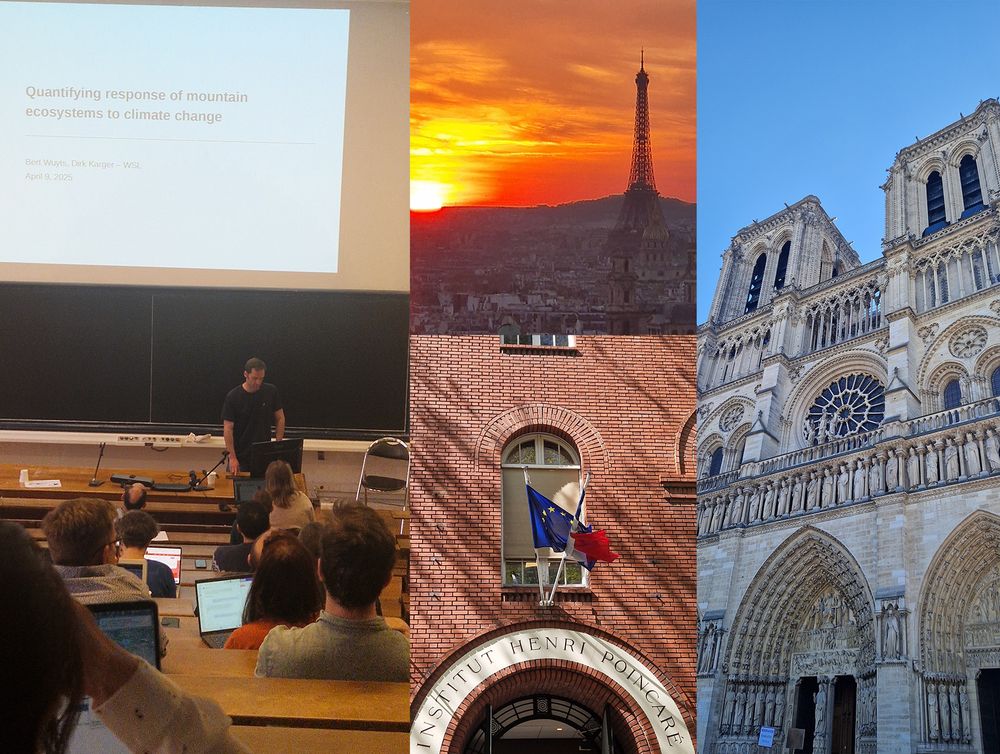
April 10, 2025 at 9:44 AM
Bert Wuyts is sharing our latest work on modeling #tipping-points in mountain ecosystems ⛰️ at the #TipESM annual meeting. Do #mountain #ecosystems hit critical tipping points in a warming world — and if so, when? 🌍⚠️ A great chance to exchange ideas. @tipesm.bsky.social ial @wsl-dme.bsky.social
Reposted by Wenna Ding
In my latest interview for @botany.one, I present you the work of @renskeonstein.bsky.social, a researcher always looking for the "big picture" of plant evolution and biogeography #Botany #PlantScience #SciComm 🧪🌍
Renske's research is something you don't want to miss! botany.one/2025/03/rens...
Renske's research is something you don't want to miss! botany.one/2025/03/rens...
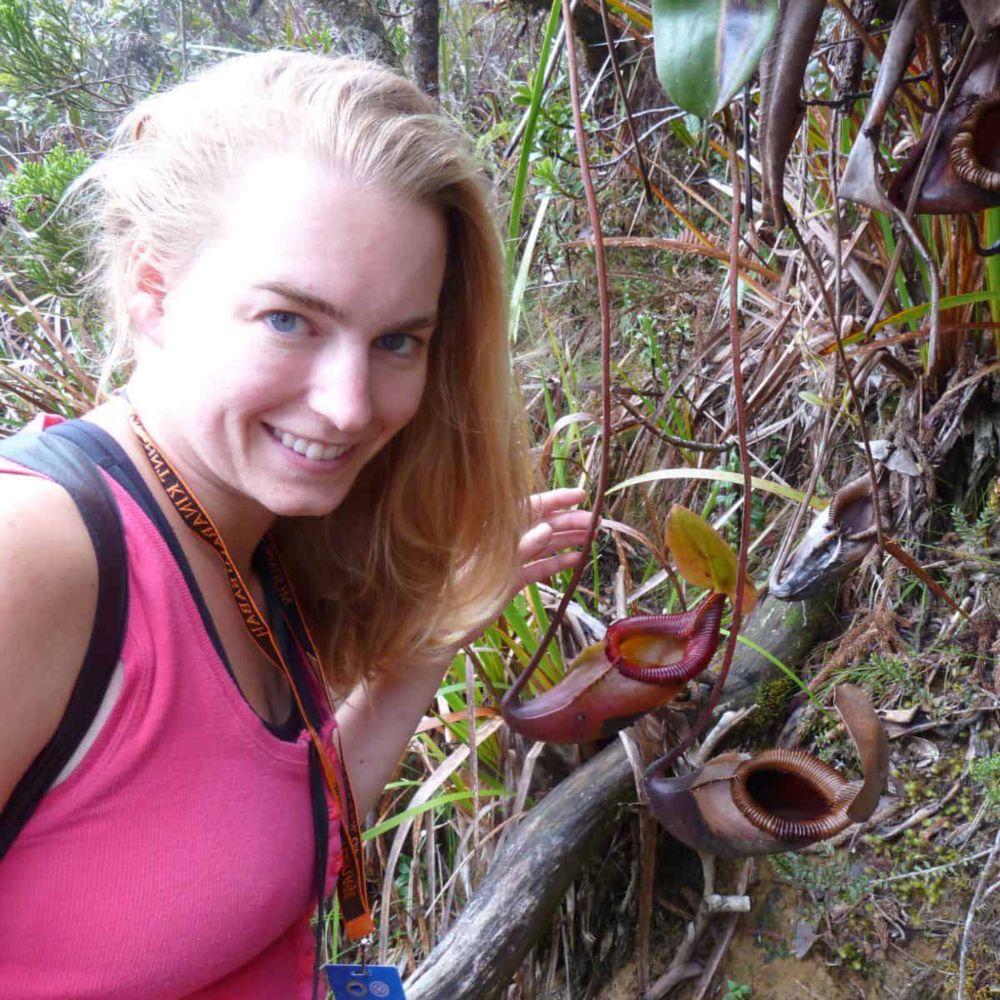
Renske Onstein: A Passion for "Big" Plant Questions
Botany One interviews Dr Renske Onstein, a researcher passionate for the evolution of plants and their characteristics on a global scale.
botany.one
March 31, 2025 at 2:39 PM
In my latest interview for @botany.one, I present you the work of @renskeonstein.bsky.social, a researcher always looking for the "big picture" of plant evolution and biogeography #Botany #PlantScience #SciComm 🧪🌍
Renske's research is something you don't want to miss! botany.one/2025/03/rens...
Renske's research is something you don't want to miss! botany.one/2025/03/rens...
Reposted by Wenna Ding
The SCION Earth Evolution Model is turning 4 years old this spring. We have celebrated by extending the framework back to ~1 Ga before present
We find some agreement with broad environmental trends from the rock record, but there is still plenty to learn!
www.sciencedirect.com/science/arti...
We find some agreement with broad environmental trends from the rock record, but there is still plenty to learn!
www.sciencedirect.com/science/arti...
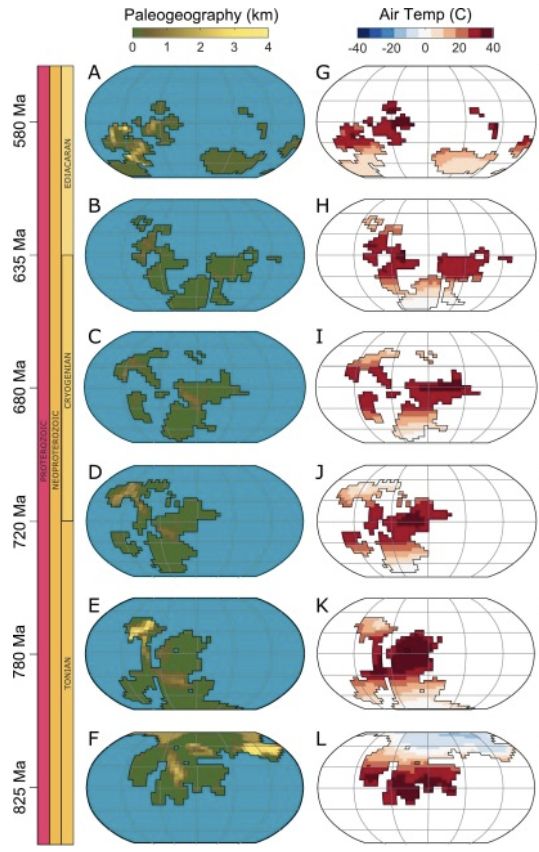
March 19, 2025 at 10:28 AM
The SCION Earth Evolution Model is turning 4 years old this spring. We have celebrated by extending the framework back to ~1 Ga before present
We find some agreement with broad environmental trends from the rock record, but there is still plenty to learn!
www.sciencedirect.com/science/arti...
We find some agreement with broad environmental trends from the rock record, but there is still plenty to learn!
www.sciencedirect.com/science/arti...
Reposted by Wenna Ding
That's fantastic news! 🎉 The #paleo community is embracing our recommendations for using #fossil #pollen data in #macroecology studies! 🌿
Check it out 🔗 bit.ly/FOSSILPOL
A joint first author with @suzetteflantua.bsky.social , V. Felde & K. Bhatta!
#GEB #global #ecology #biogeography #palaeoecology
Check it out 🔗 bit.ly/FOSSILPOL
A joint first author with @suzetteflantua.bsky.social , V. Felde & K. Bhatta!
#GEB #global #ecology #biogeography #palaeoecology
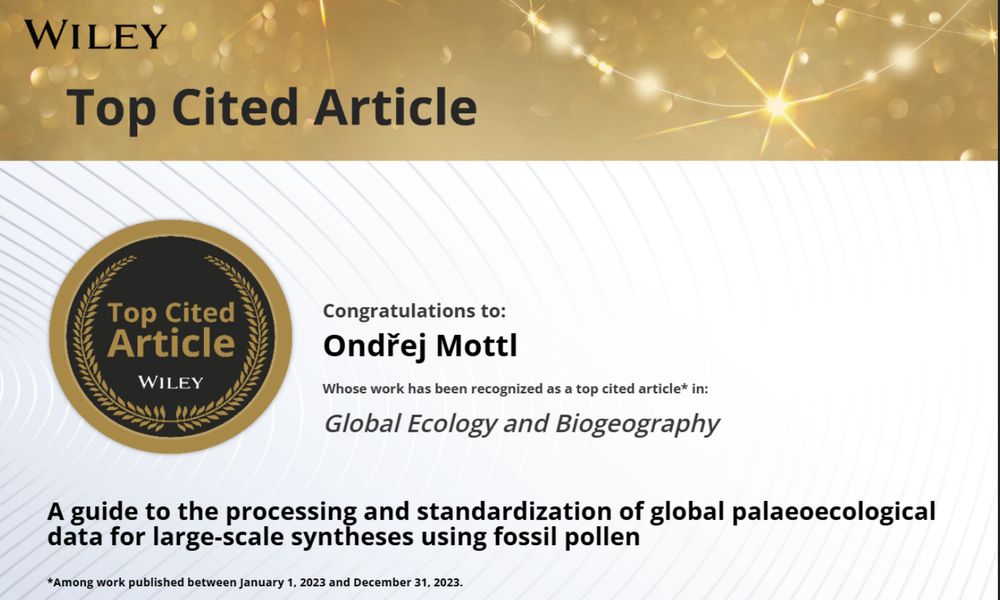
March 19, 2025 at 1:29 PM
That's fantastic news! 🎉 The #paleo community is embracing our recommendations for using #fossil #pollen data in #macroecology studies! 🌿
Check it out 🔗 bit.ly/FOSSILPOL
A joint first author with @suzetteflantua.bsky.social , V. Felde & K. Bhatta!
#GEB #global #ecology #biogeography #palaeoecology
Check it out 🔗 bit.ly/FOSSILPOL
A joint first author with @suzetteflantua.bsky.social , V. Felde & K. Bhatta!
#GEB #global #ecology #biogeography #palaeoecology
Reposted by Wenna Ding
'No one will judge you for asking what feels like a stupid question.'
For #IDWGS2025, the Mathematical, Physical, and Life Sciences Division asked scientists from across the faculty about the advice they wish they had received at the beginning of their careers ⬇️
For #IDWGS2025, the Mathematical, Physical, and Life Sciences Division asked scientists from across the faculty about the advice they wish they had received at the beginning of their careers ⬇️



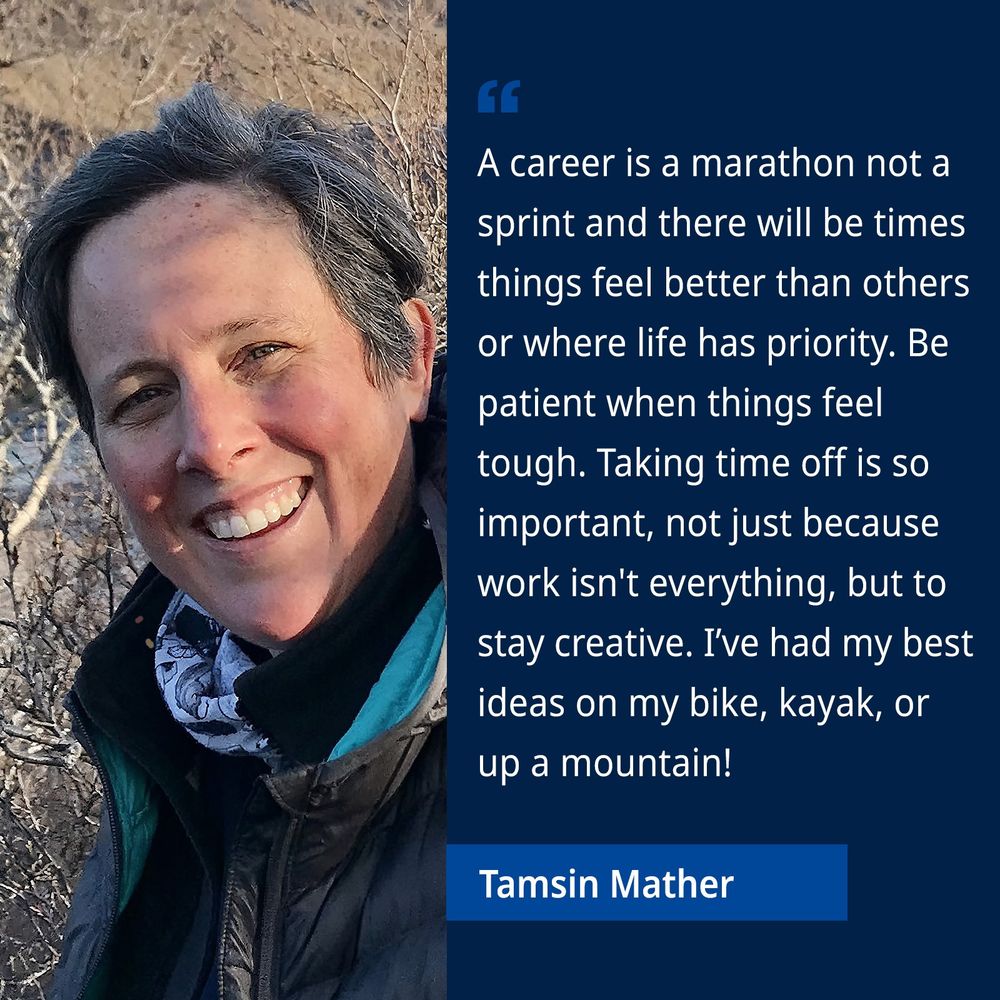
February 11, 2025 at 5:13 PM
'No one will judge you for asking what feels like a stupid question.'
For #IDWGS2025, the Mathematical, Physical, and Life Sciences Division asked scientists from across the faculty about the advice they wish they had received at the beginning of their careers ⬇️
For #IDWGS2025, the Mathematical, Physical, and Life Sciences Division asked scientists from across the faculty about the advice they wish they had received at the beginning of their careers ⬇️
Reposted by Wenna Ding
Tropical forests are not all the same: they show many shades of geographical variation. Our new paper in Nature led by @jeaggu.bsky.social combines field and satellite data to make a first map the canopy functional traits of the world’s tropical forests: www.nature.com/articles/s41...
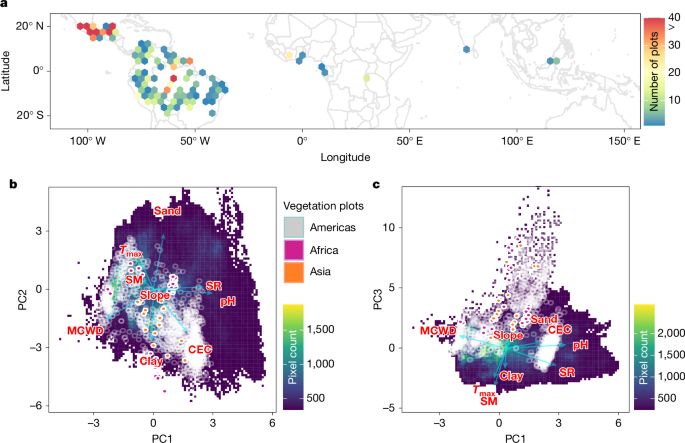
Canopy functional trait variation across Earth’s tropical forests - Nature
Data from a variety of sources—including satellite, climate and soil data, as well as field-collected information on plant traits—are pooled and analysed to map the functional diversity of tropical fo...
www.nature.com
March 6, 2025 at 7:49 AM
Tropical forests are not all the same: they show many shades of geographical variation. Our new paper in Nature led by @jeaggu.bsky.social combines field and satellite data to make a first map the canopy functional traits of the world’s tropical forests: www.nature.com/articles/s41...
Reposted by Wenna Ding
In our new paper in @science.org, we show that tropical forests are changing over time, but too slowly to track climate change. Our article, led by @jeaggu.bsky.social just out:
www.science.org/doi/10.1126/...
@oxfordgeography.bsky.social
@naturerecovery.bsky.social
@forestplots.bsky.social
www.science.org/doi/10.1126/...
@oxfordgeography.bsky.social
@naturerecovery.bsky.social
@forestplots.bsky.social
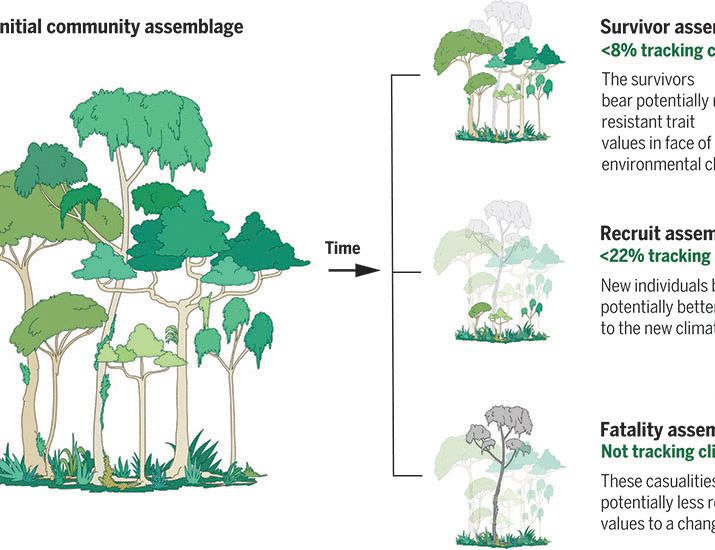
Tropical forests in the Americas are changing too slowly to track climate change
Understanding the capacity of forests to adapt to climate change is of pivotal importance for conservation science, yet this is still widely unknown. This knowledge gap is particularly acute in high-b...
www.science.org
March 7, 2025 at 7:56 AM
In our new paper in @science.org, we show that tropical forests are changing over time, but too slowly to track climate change. Our article, led by @jeaggu.bsky.social just out:
www.science.org/doi/10.1126/...
@oxfordgeography.bsky.social
@naturerecovery.bsky.social
@forestplots.bsky.social
www.science.org/doi/10.1126/...
@oxfordgeography.bsky.social
@naturerecovery.bsky.social
@forestplots.bsky.social
Reposted by Wenna Ding
Friendly reminder: Our Summer School on Blue-Green Biodiversity has an early application track this year!
If you need a visa to Switzerland, apply by March 15. You'll be notified by early April, giving you more time for the visa application process.
biodiversitycenter.wsl.ch/en/events/de...
If you need a visa to Switzerland, apply by March 15. You'll be notified by early April, giving you more time for the visa application process.
biodiversitycenter.wsl.ch/en/events/de...
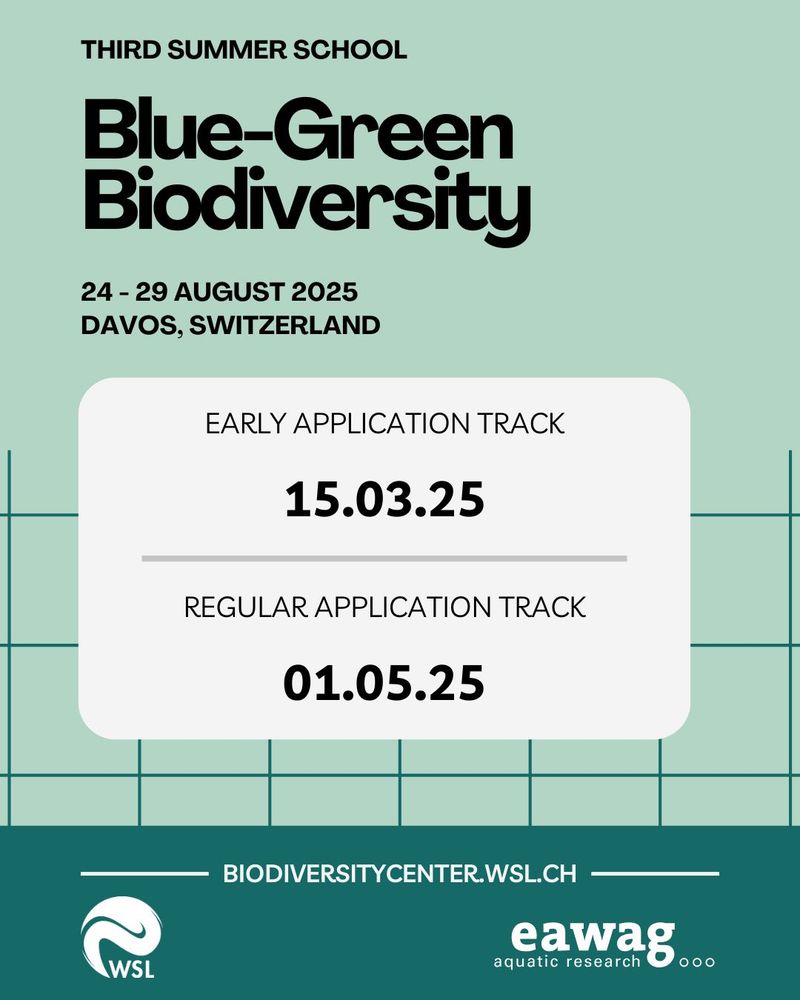
February 28, 2025 at 10:47 AM
Friendly reminder: Our Summer School on Blue-Green Biodiversity has an early application track this year!
If you need a visa to Switzerland, apply by March 15. You'll be notified by early April, giving you more time for the visa application process.
biodiversitycenter.wsl.ch/en/events/de...
If you need a visa to Switzerland, apply by March 15. You'll be notified by early April, giving you more time for the visa application process.
biodiversitycenter.wsl.ch/en/events/de...
Reposted by Wenna Ding
In this mountain biodiversity review, we emphasized roles of habitat creation, disruption, and oscillation in driving biodiversity. Additionally, we developed a set of geomorphic predictors that may influence biodiversity patterns, with the potential for application to other montane systems.
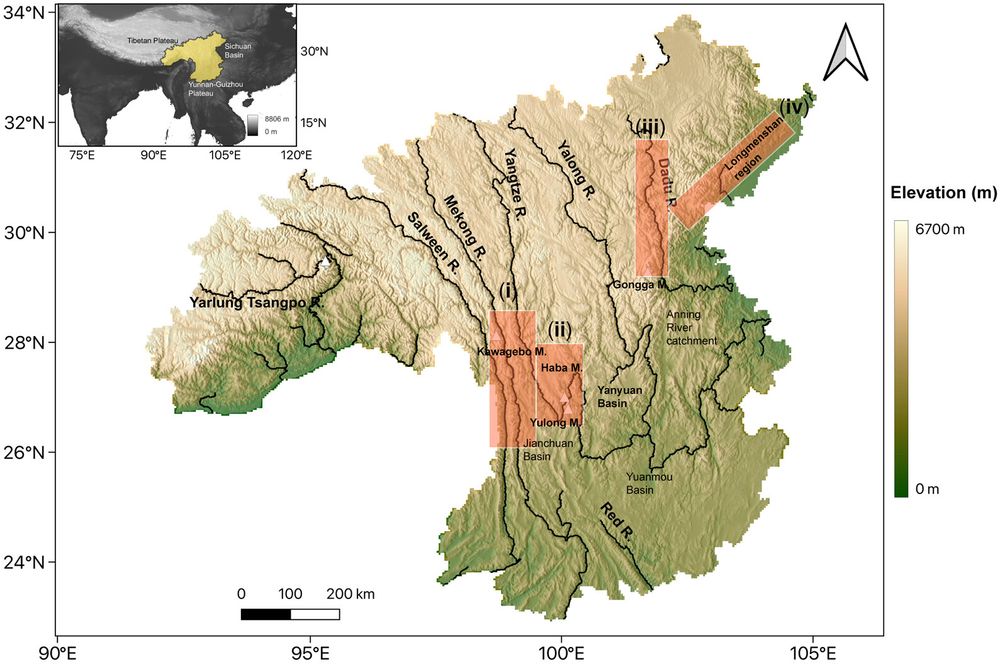
February 14, 2025 at 12:21 PM
In this mountain biodiversity review, we emphasized roles of habitat creation, disruption, and oscillation in driving biodiversity. Additionally, we developed a set of geomorphic predictors that may influence biodiversity patterns, with the potential for application to other montane systems.
Reposted by Wenna Ding
New paper in @science.org !
Where and when did the #multiyear-droughts occur around the world? Have they become more prevailing? We identified over 10,000 such events and found that they have been increasingly occupying the terrestrial land. (1/6)
www.science.org/doi/10.1126/science.ado4245
Where and when did the #multiyear-droughts occur around the world? Have they become more prevailing? We identified over 10,000 such events and found that they have been increasingly occupying the terrestrial land. (1/6)
www.science.org/doi/10.1126/science.ado4245
January 16, 2025 at 8:23 PM
New paper in @science.org !
Where and when did the #multiyear-droughts occur around the world? Have they become more prevailing? We identified over 10,000 such events and found that they have been increasingly occupying the terrestrial land. (1/6)
www.science.org/doi/10.1126/science.ado4245
Where and when did the #multiyear-droughts occur around the world? Have they become more prevailing? We identified over 10,000 such events and found that they have been increasingly occupying the terrestrial land. (1/6)
www.science.org/doi/10.1126/science.ado4245
Reposted by Wenna Ding
🌍 Mega-droughts are becoming more frequent and intense globally. Our study in Science www.science.org/doi/10.1126/... shows that multi-year droughts have significantly increased over the last 40 years with severe impacts @wslresearch.bsky.social @wsl-dme.bsky.social @extremeswsl.bsky.social (1/7) 🧵
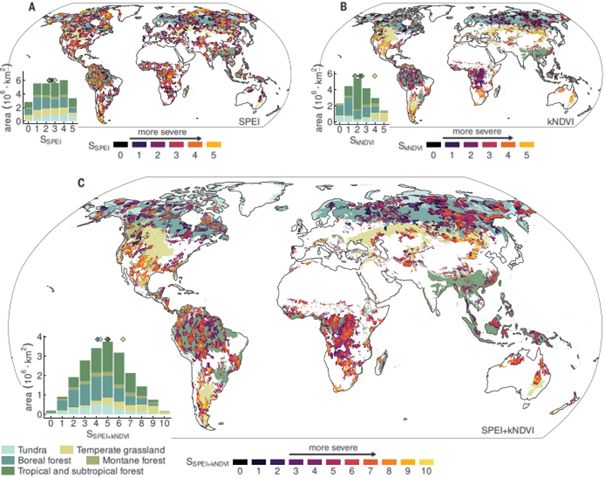
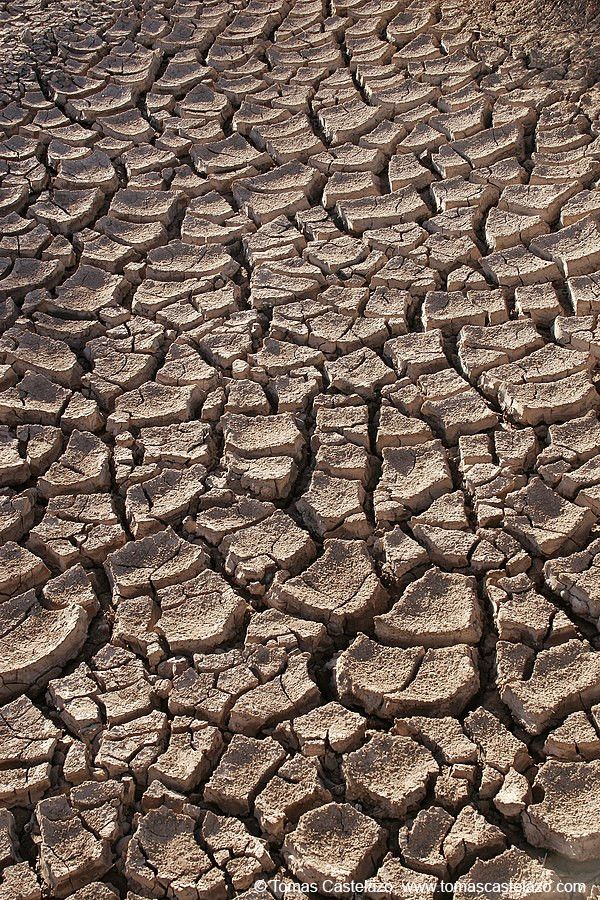
January 17, 2025 at 1:35 PM
🌍 Mega-droughts are becoming more frequent and intense globally. Our study in Science www.science.org/doi/10.1126/... shows that multi-year droughts have significantly increased over the last 40 years with severe impacts @wslresearch.bsky.social @wsl-dme.bsky.social @extremeswsl.bsky.social (1/7) 🧵
Reposted by Wenna Ding
Walter Jetz & @dirknkarger.bsky.social presented their work on “Mountain Thermal Belts in a Changing #Climate.”🤓 Using #CHELSA climate data on structuring the elevation belts of global #mountains by thermal belts anchored to the #alpine treeline has led to a new high-resolution (90m) dataset.⛰️🛰️💻
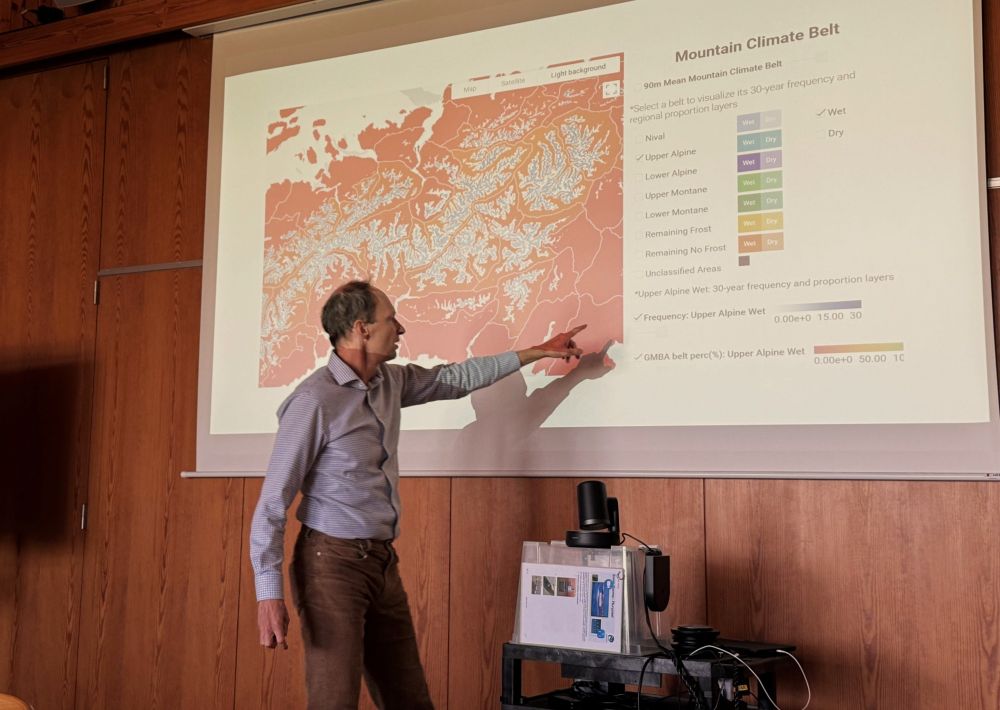
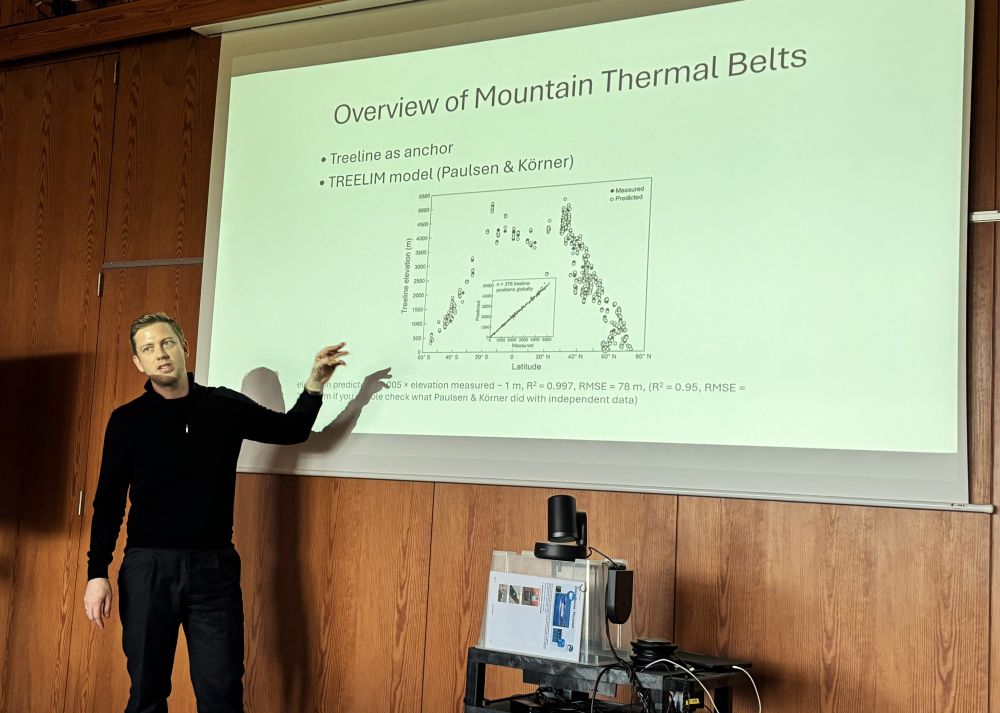
January 15, 2025 at 2:21 PM
Walter Jetz & @dirknkarger.bsky.social presented their work on “Mountain Thermal Belts in a Changing #Climate.”🤓 Using #CHELSA climate data on structuring the elevation belts of global #mountains by thermal belts anchored to the #alpine treeline has led to a new high-resolution (90m) dataset.⛰️🛰️💻
A very comprehensive study on stick and leaf insects and so cool pictures! Lineages can independently colonize similar habitats, repeatedly evolving in parallel directions of similar body forms. #Adaptive #Evolution www.pnas.org/doi/10.1073/...
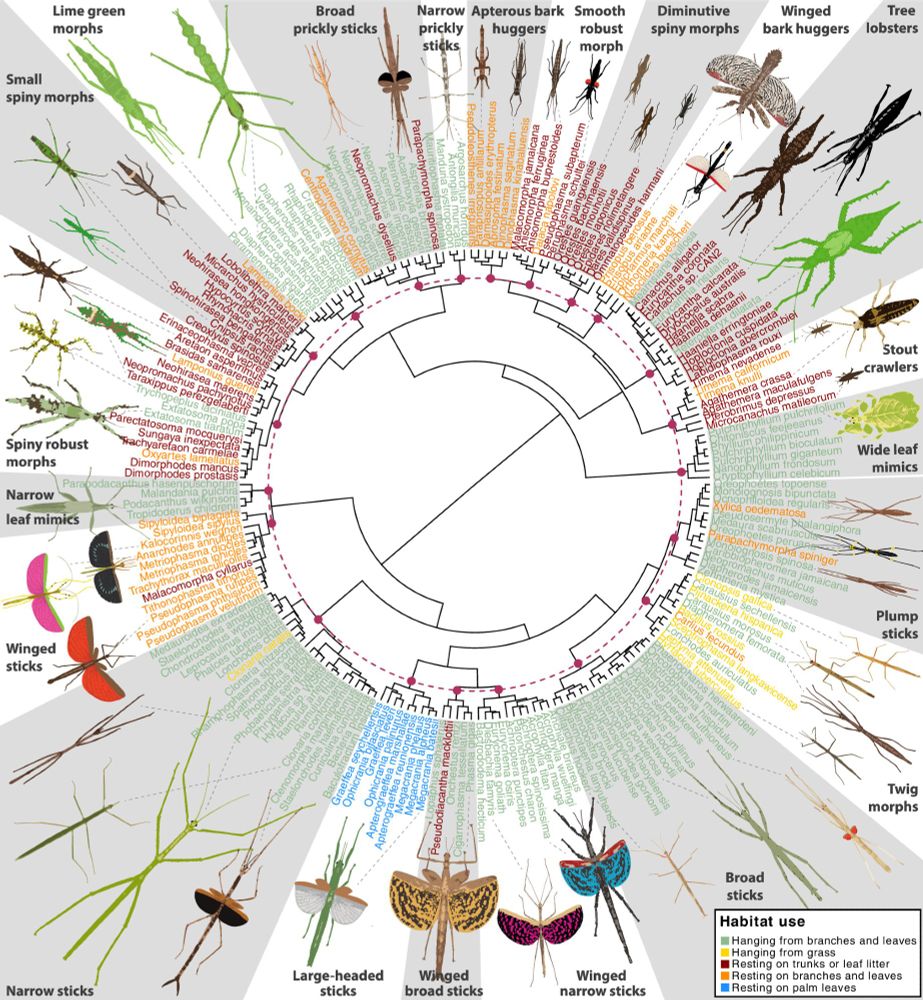
January 15, 2025 at 9:36 AM
A very comprehensive study on stick and leaf insects and so cool pictures! Lineages can independently colonize similar habitats, repeatedly evolving in parallel directions of similar body forms. #Adaptive #Evolution www.pnas.org/doi/10.1073/...

